© 2025 MJH Life Sciences™ , Patient Care Online – Primary Care News and Clinical Resources. All rights reserved.
Keeping Up with Coffee: A 6-question Health Quiz
What's your caffeine IQ? Test your knowledge on the latest caffeine research from its effect on cardiovascular disease to liver cancer with this brief quiz.
Recent research findings have uncovered some health benefits of drinking coffee to go along with the risks. Take this brief test to find out what you know about the latest findings on the health effects of coffee consumption.
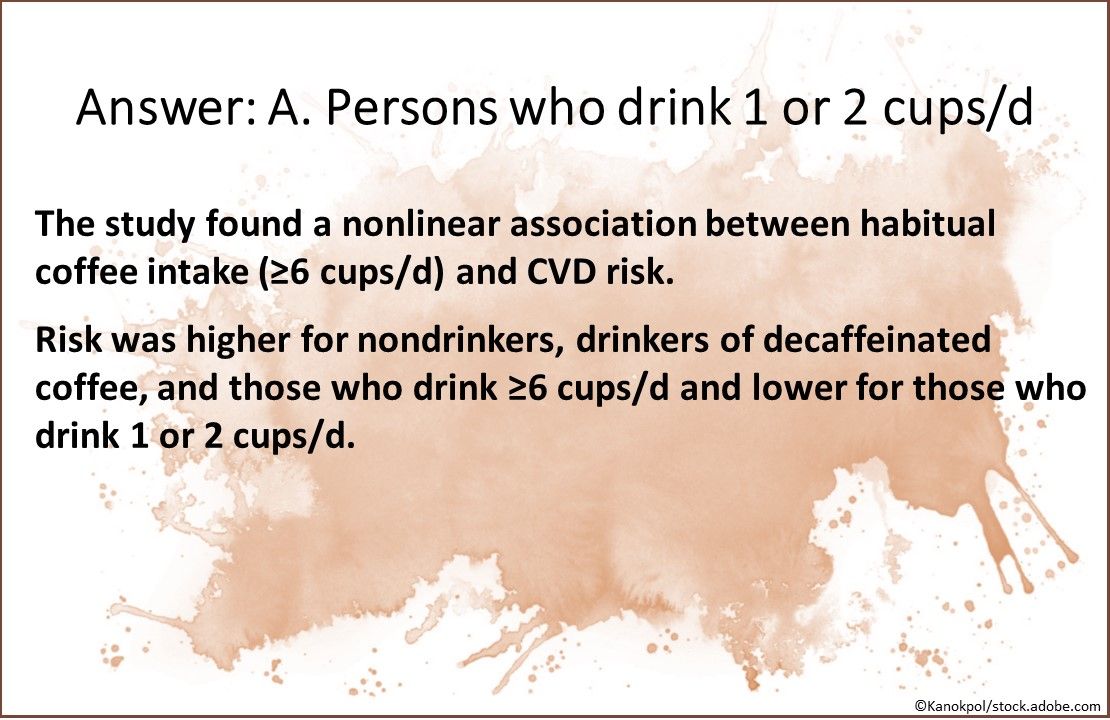
Answer: A. Persons who drink 1 or 2 cups/d. The study published in the American Journal of Clinical Nutrition in March found a nonlinear association between habitual coffee intake (≥6 cups/d) and CVD risk. Risk was higher for nondrinkers, drinkers of decaffeinated coffee, and those who drink ≥6 cups/d and lower for those who drink 1 or 2 cups/d.

Question 2. Evening use of which of the above substances was found to be associated with increased sleep fragmentation that night?
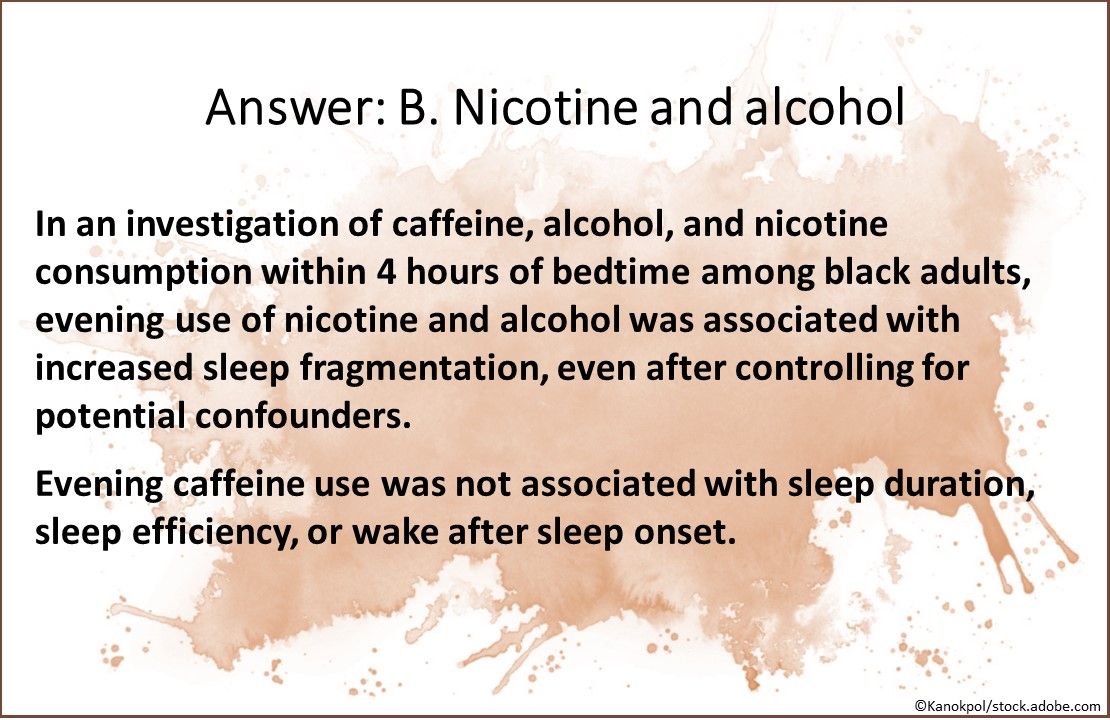
Answer: B. Nicotine and alcohol. In an investigation of caffeine, alcohol, and nicotine intake within 4 hours of bedtime among black adults, evening use of nicotine and alcohol was associated with increased sleep fragmentation, even after controlling for potential confounders. Evening caffeine use was not associated with sleep duration, sleep efficiency, or wake after sleep onset. The investigation was published August 6 in Sleep.
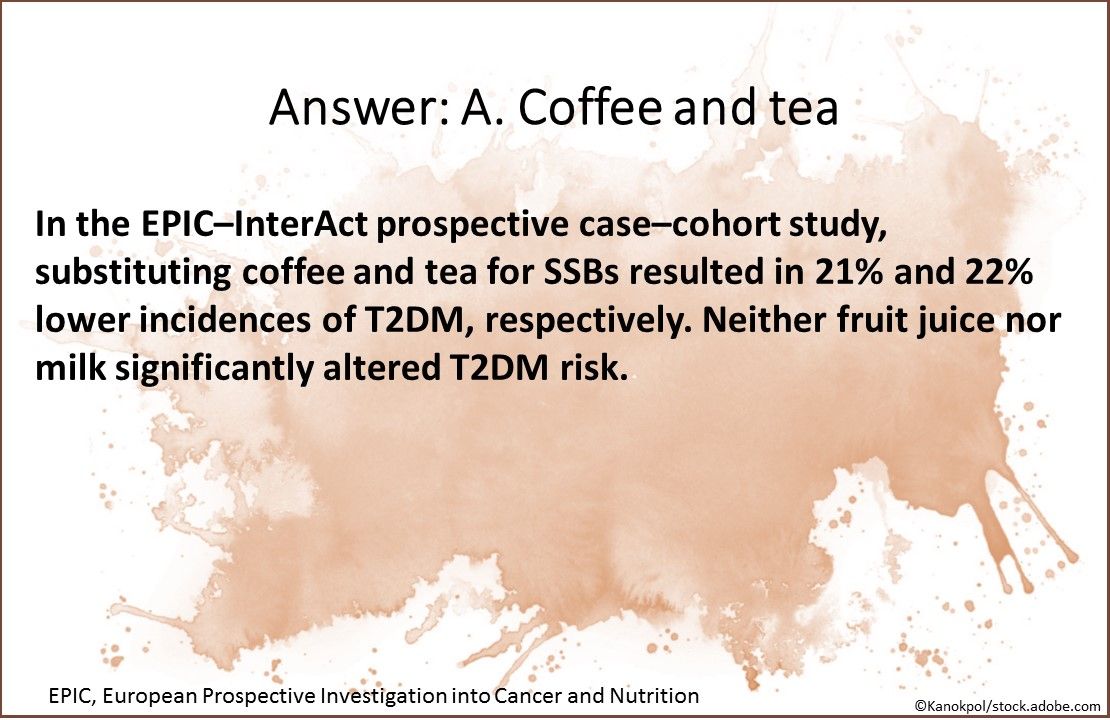
Answer: A. Coffee and tea. In the EPIC–InterAct prospective case–cohort study published August 8 in The Journal of Nutrition, substituting coffee and tea for SSBs resulted in 21% and 22% lower incidences of T2DM, respectively. Neither fruit juice nor milk significantly altered T2DM risk.
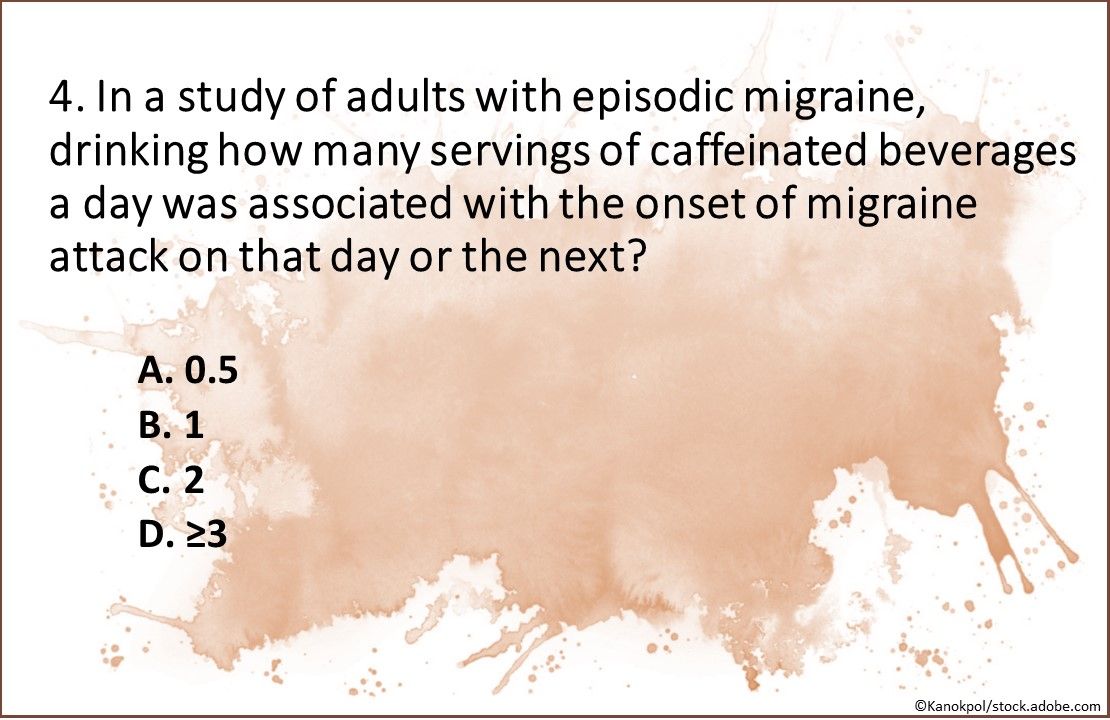
Question 4. In a study of adults with episodic migraine, drinking how many servings of caffeinated beverages a day was associated with the onset of migraine attack on that day or the next?

Answer: D. ≥3 servings/d. Findings from a recent prospective cohort study of adults with episodic migraine suggested that high levels of caffeinated beverage intake (≥3 servings/d) was linked to the onset of migraine on that day or the next. However, drinking 1 or 2 servings/d was not associated with migraine risk. The study was published online on August 2 in TheAmerican Journal of Medicine.
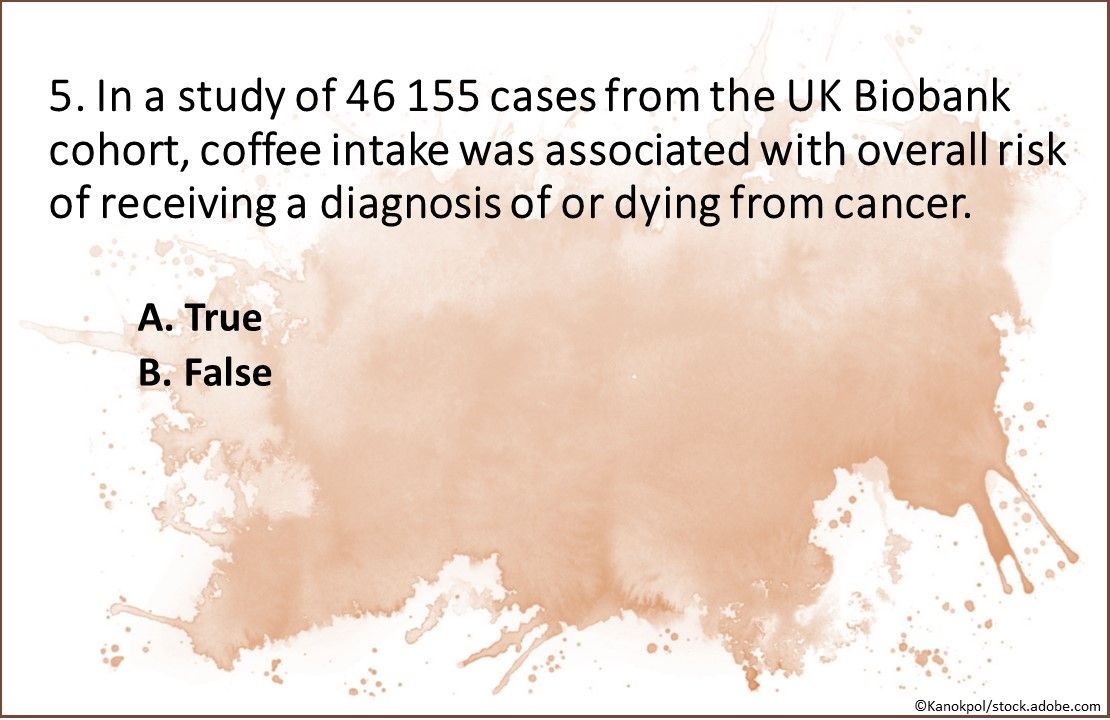
Question 5. True or false? In a study of 46 155 cases from the UK Biobank cohort, coffee intake was associated with overall risk of receiving a diagnosis of or dying from cancer.
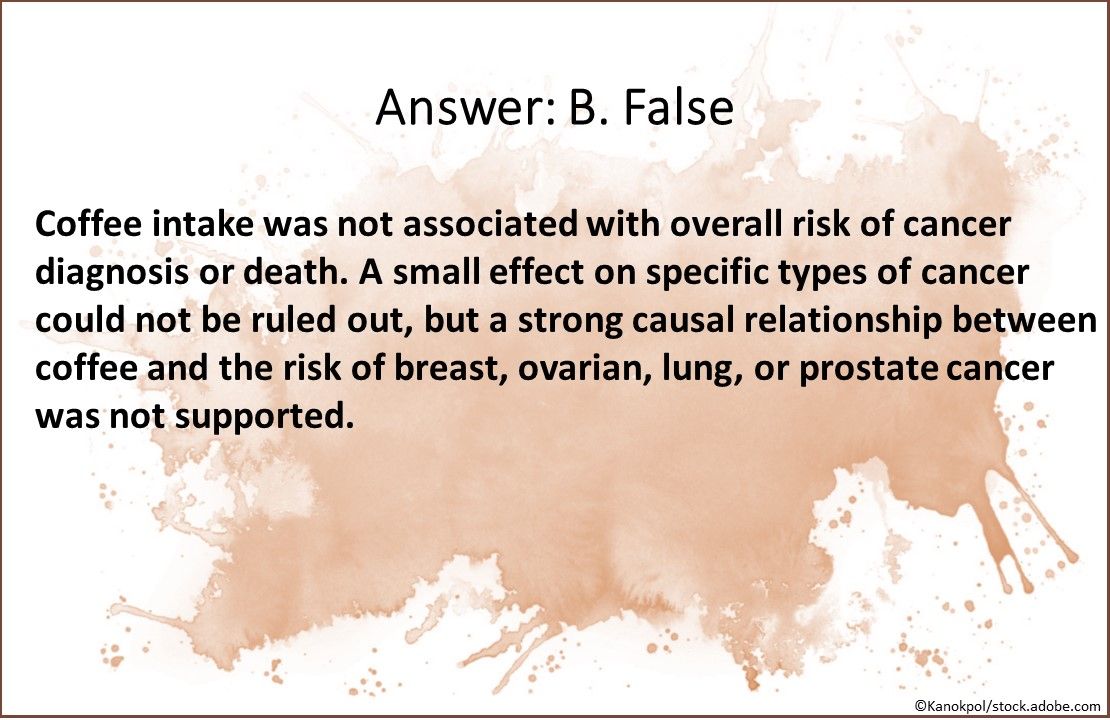
Answer: B. False. In a study of >46 000 cases from the UK Biobank cohort published July 17 in the International Journal of Epidemiology, coffee consumption was not associated with overall risk of cancer diagnosis or death. A small effect on specific types of cancer could not be ruled out, but a strong causal relationship between coffee and the risk of breast, ovarian, lung, or prostate cancer was not supported.
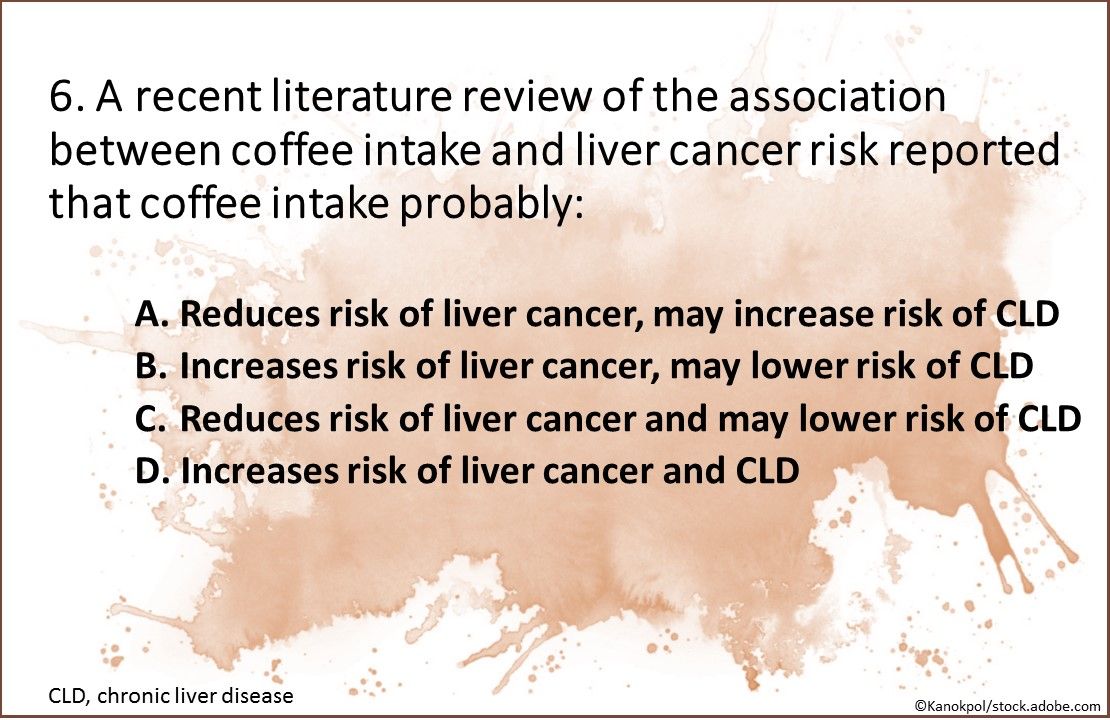
Question 6. According to a recent literature review of the association between coffee intake and liver cancer risk, coffee intake probably does which of the above?
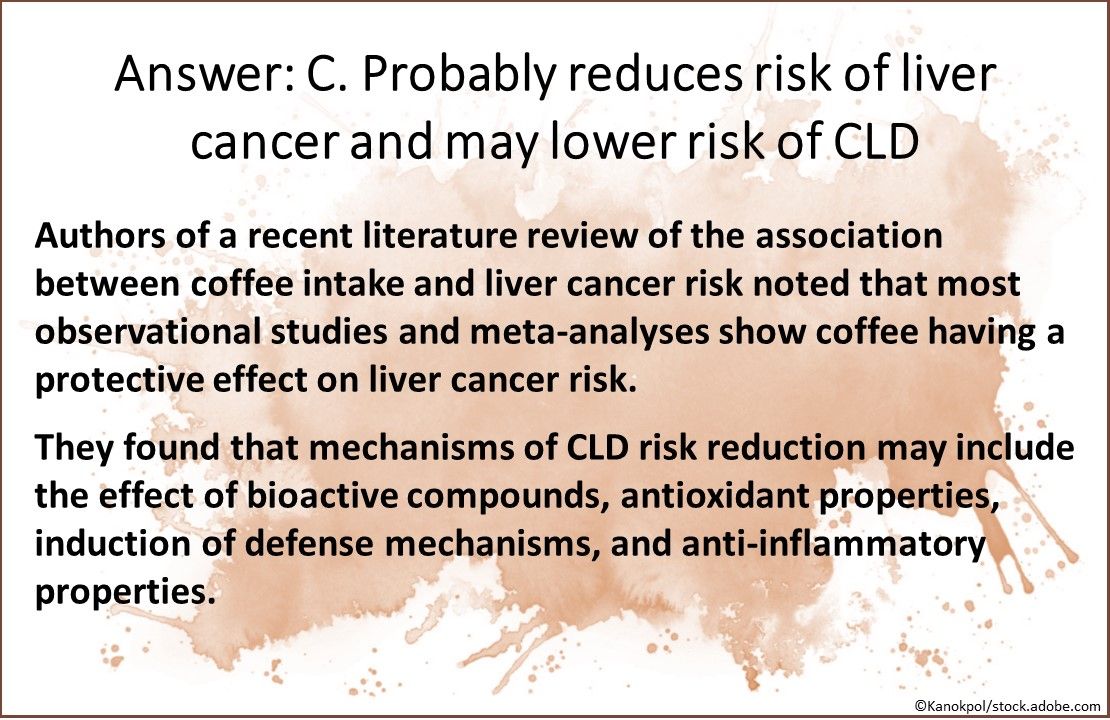
Answer: C. Probably reduces risk of liver cancer and may lower risk of CLD. Authors of a recent literature review of the association between coffee intake and liver cancer risk noted that most observational studies and meta-analyses show coffee having a protective effect on liver cancer risk. The authors found that mechanisms of CLD risk reduction may include the effect of bioactive compounds, antioxidant properties, induction of defense mechanisms, and anti-inflammatory properties. The review was published online on April 11 in Current Nutrition Reports.
For more information on all questions and answers, please visit Coffee Reconsidered: New Grounds for Drinking It.






